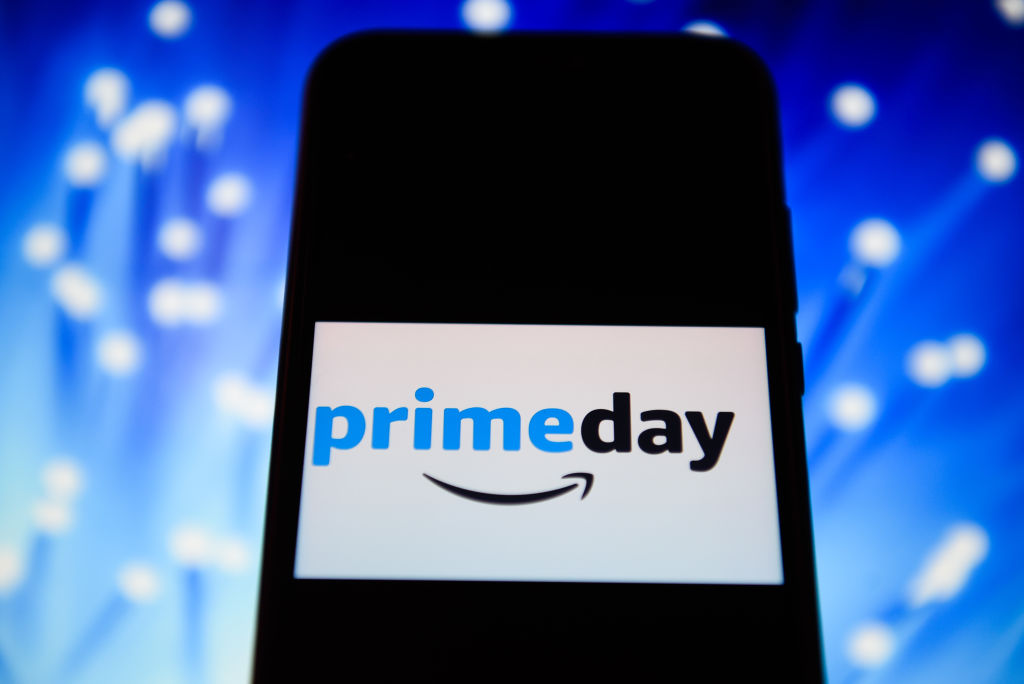6 Strategies to Save More This Year
These tips will help you get started with saving, no matter your income.

Profit and prosper with the best of Kiplinger's advice on investing, taxes, retirement, personal finance and much more. Delivered daily. Enter your email in the box and click Sign Me Up.
You are now subscribed
Your newsletter sign-up was successful
Want to add more newsletters?

Delivered daily
Kiplinger Today
Profit and prosper with the best of Kiplinger's advice on investing, taxes, retirement, personal finance and much more delivered daily. Smart money moves start here.

Sent five days a week
Kiplinger A Step Ahead
Get practical help to make better financial decisions in your everyday life, from spending to savings on top deals.

Delivered daily
Kiplinger Closing Bell
Get today's biggest financial and investing headlines delivered to your inbox every day the U.S. stock market is open.

Sent twice a week
Kiplinger Adviser Intel
Financial pros across the country share best practices and fresh tactics to preserve and grow your wealth.

Delivered weekly
Kiplinger Tax Tips
Trim your federal and state tax bills with practical tax-planning and tax-cutting strategies.

Sent twice a week
Kiplinger Retirement Tips
Your twice-a-week guide to planning and enjoying a financially secure and richly rewarding retirement

Sent bimonthly.
Kiplinger Adviser Angle
Insights for advisers, wealth managers and other financial professionals.

Sent twice a week
Kiplinger Investing Weekly
Your twice-a-week roundup of promising stocks, funds, companies and industries you should consider, ones you should avoid, and why.

Sent weekly for six weeks
Kiplinger Invest for Retirement
Your step-by-step six-part series on how to invest for retirement, from devising a successful strategy to exactly which investments to choose.
Saving doesn't come easily for us young adults. Entry-level salaries don't give you a lot to work with. And, well, we also tend to spend what we make -- and then some -- on the latest gadgets and flashiest fashions.
SEE OUR SLIDE SHOW: 10 Low-Risk Ways to Earn More Interest on Your Savings
But don’t worry. We’re not doomed to frivolity and the wreckage it can make of our finances. Here's how you can start saving smart throughout 2012:
From just $107.88 $24.99 for Kiplinger Personal Finance
Become a smarter, better informed investor. Subscribe from just $107.88 $24.99, plus get up to 4 Special Issues

Sign up for Kiplinger’s Free Newsletters
Profit and prosper with the best of expert advice on investing, taxes, retirement, personal finance and more - straight to your e-mail.
Profit and prosper with the best of expert advice - straight to your e-mail.
Periodically calculate how much you spend. What better time to review your budget than at the start of a New Year? “It’s really hard to [track your spending] each month, so aim for just once or twice a year,” says Jill Boynton, a certified financial planner in Newington, New Hampshire.
Just be sure when you do it that you track everything. Boynton recommends filling out a spreadsheet with a month’s worth of spending. Or you can try an online budgeting tool such as Mint.com (See our slide show: Which Budgeting Site is Best for You?). But note: Mint works best for those who deal mostly in plastic as opposed to cash. When you make an ATM withdrawal, the site labels the transaction as “Cash & ATM.” Unless you diligently manage your cash transactions (you can manually edit Mint’s labels), you can easily lose track of where the money goes.
The drudgery of tracking spending can pay off when you find surprising expenses you could easily cut. At the end of 2011, I crunched my own numbers and found that I shelled out about $200 a month at Starbucks and other restaurants. I’m sure I could cut that by at least half. That’s like finding a $100 bill every month in my back pocket.
Open a separate account to keep your hands off some of your cash. Use your checking account for regular expenses, including rent, utilities, food, clothing and even entertainment. But think of your savings account as off limits.
If you set up automatic transfers to your savings account, you won’t even notice the money is missing from your checking account. And by paying yourself first, you avoid spending everything and having nothing left over to save.
It’s true that living in a low-interest-rate world makes it harder for your savings to grow. Find banks offering the highest rates at Bankrate.com, and look for accounts with no required minimums and no fees. As of late January, Ally’s savings accounts fit the bill, yielding 0.84% with no required minimums and no fees. Sadly, 0.84% qualifies as “high yielding” these days, but it’s better than nothing, and it keeps your money secure. But, as Boynton notes, “with interest rates so low, you need to be saving even more.”
Start off small. Even if your salary is on the low end, you can always save at least a little bit. In fact, Susan Veligor, a certified financial planner in Portland, Maine, says the best way to start saving is with really small amounts that will eventually add up big time. For example, stash away just $25 a week, and in six months you’ll have a cool $650. In a year, your cash pile will grow into $1,300. Plus, starting out slow and having small successes will reinforce the habit.
Play money mind games with yourself. Here's one: When you’re spending money, don’t just think about the price tag; also think about how much money you had to earn before taxes. The mind trick will force you to realize that you had to earn, say, $12 to pay for that $10 movie ticket.
Another savings trick: When you’re budgeting, round down your income and round up your expenses. For example, if your phone bill is $92.37 per month, budget for $100. If your monthly income is $1,692.99, round down to $1,600. This move guarantees you’ll live below your means and free up some money to save each month (Read: Just Say No to Extras to Save Money).
Resist the temptation to splurge. “It really is easy to spend nowadays,” says Veligor. “You have to disconnect yourself from society [to avoid it].” One tactic that saves me a lot of money is finding time on the weekends to plan out my lunches for the week. Buying my lunch supplies on the weekend helps me avoid splurging for $10 or more each day on convenience foods. I also eat healthier this way.
Set savings goals. Having a worthwhile target in mind, such as a luxury vacation or (thinking more long-term) a happy retirement, will help you remember that saving is not about denying yourself what you want today; saving is really about working toward future rewards. Plus, with a specific number attached to your goal, you’ll be forced to figure out how much you’ll need to save each week and month to reach it by a certain date.
Seeding an emergency fund should take first priority for your savings. You should have at least three to six months’ worth of living expenses, and the money should be risk-free -- that means savings accounts insured by the Federal Deposit Insurance Corp. -- and instantly accessible.
Profit and prosper with the best of Kiplinger's advice on investing, taxes, retirement, personal finance and much more. Delivered daily. Enter your email in the box and click Sign Me Up.

John Miley is a Senior Associate Editor at The Kiplinger Letter. He mainly covers AI, technology, telecom and education, but will jump on other business topics as needed. In his role, he provides timely forecasts about emerging technologies, business trends and government regulations. He also edits stories for the weekly publication and has written and edited email newsletters.
He holds a BA from Bates College and a master’s degree in magazine journalism from Northwestern University, where he specialized in business reporting. An avid runner and a former decathlete, he has written about fitness and competed in triathlons.
-
 How Much It Costs to Host a Super Bowl Party in 2026
How Much It Costs to Host a Super Bowl Party in 2026Hosting a Super Bowl party in 2026 could cost you. Here's a breakdown of food, drink and entertainment costs — plus ways to save.
-
 3 Reasons to Use a 5-Year CD As You Approach Retirement
3 Reasons to Use a 5-Year CD As You Approach RetirementA five-year CD can help you reach other milestones as you approach retirement.
-
 Your Adult Kids Are Doing Fine. Is It Time To Spend Some of Their Inheritance?
Your Adult Kids Are Doing Fine. Is It Time To Spend Some of Their Inheritance?If your kids are successful, do they need an inheritance? Ask yourself these four questions before passing down another dollar.
-
 21 Last-Minute Gifts for Grandparents Day 2025 to Give Right Now
21 Last-Minute Gifts for Grandparents Day 2025 to Give Right NowHoliday Tips Last-minute gifting is never easy. But here are some ideas to celebrate Grandparents Day.
-
 Texas Sales Tax-Free Weekend 2025
Texas Sales Tax-Free Weekend 2025Tax Holiday Here's what you needed to know about the Texas sales tax holiday.
-
 Alabama Tax-Free Weekend 2025
Alabama Tax-Free Weekend 2025Tax Holiday Here’s everything you need to know about the 2025 back-to-school Alabama sales tax holiday.
-
 The Sweet 23: States Where Twix and Kit Kat Avoid the ‘Candy Tax’
The Sweet 23: States Where Twix and Kit Kat Avoid the ‘Candy Tax’State Taxes There’s something spooky this Halloween, and it’s not just the ghouls. Find out if your state’s sales tax takes a bite out of sweet savings.
-
 Florida Back-to-School Tax-Free Holiday 2025
Florida Back-to-School Tax-Free Holiday 2025Sales Taxes The new tax-free holiday in Florida brought month-long savings on computers, clothing and other school supplies.
-
 Five Reasons You Shouldn't Shop Amazon's Prime Big Deal Days
Five Reasons You Shouldn't Shop Amazon's Prime Big Deal DaysSmart Buying Are Amazon Prime Big Deal Days still a good deal? We'll break it down.
-
 Four Smart Steps To Take Before Buying Your First Home
Four Smart Steps To Take Before Buying Your First Homehome Buying your first home can be daunting. Here are four things you need to do years before you start house-hunting to prepare financially for the biggest purchase of your life.
-
 Best Cash Back Credit Cards
Best Cash Back Credit CardsCredit Cards If you're searching for a credit card that rewards you for everyday purchases, we've chosen the best.